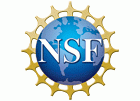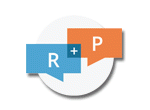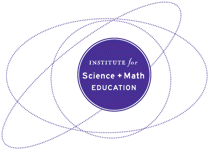How teachers can develop formative assessments that fit a three-dimensional view of science learning

- Teachers should be using formative assessments as they implement instruction for 3D learning. There is a pressing need to develop 3D formative assessments.
- District Staff & PD Providers need models of what 3D formative assessments look like and design criteria to modify or adapt existing formative assessments.
- School Leaders should support teachers in collaborative spaces to experiment with 3D formative assessments.
What Is The Issue?
The new vision for K-12 science education and corresponding Next Generation Science Standards (NGSS) promotes a three-dimensional view of learning in which students learn and apply disciplinary core ideas (DCIs) and cross-cutting concepts (CCCs) as they engage in science and engineering practices (SEPs). But what do 3D formative assessments look like? What are the different types of 3D formative assessment that could be used in classrooms? Educators should work with their peers to develop and refine formative assessments that fit with the 3D model of learning.
Authors:
BY ERIN FURTAK, MARIAN PASQUALE & RACHEL AAZZERAH - JANUARY 2016
Reflection Questions
- Where in your instruction might it be helpful to gauge students’ progress toward intermediate learning targets?
- Anticipate student responses to formative assessments before using them. What feedback can you develop to move students forward in their learning?
- How can different formative assessments—whole-class conversations, written activities, and student work—give you a coherent picture of what students know and can do?
Things to Consider
- Effective implementation of the NGSS can’t be done with summative assessment alone. It requires different forms of ongoing classroom formative assessment.
- 3D assessments will require multiple components that work together to provide a coherent picture of student understanding of DCIs, CCCs, and SEPs. Responses to these components will provide multiple sources of evidence to guide a teacher in making inferences about what students know and are able to do, and also point toward next steps in instruction.
- 3D formative assessments can be informal and embedded in teachers’ daily practice, or formal written assessments that are specifically developed to surface student engagement in 3D learning. A formative assessment can be as simple as posing a question to a student or listening to a group working on an investigation.
- Formative assessments should engage students in the full range of science and engineering practices. This focuses assessment on making sense of phenomena and not factual recall. Assessments should focus on making sense of compelling phenomena. Some items should focus on multiple practices (from science, ELA, math).
- Space should be provided for teachers to engage in collaborative design, enactment, and refinement of formative assessments. This can lead to improved student learning, coordinated classroom practice, and higher-quality formative assessments. Using preexisting lists of criteria and scaffolds for teacher assessment design can help make these learning community spaces more productive.
"It is critical that assessments help students internalize standards, become better able to reflect on and evaluate their own work & be motivated and capable of revising and improving it, as well as seeking out additional resources... to answer emerging questions."
Attending to Equity
- Formative assessment can narrow achievement gaps by generating info that can guide instruction for all students.
- Formative assessments can be designed to be accessible to culturally and linguistically diverse students in ways summative assessments cannot—to allow students to respond in a variety of ways (e.g., in their native language or with the support of other students).
- Effective formative assessments can be situated in compelling, everyday-relevant contexts that are more accessible.
Recommended Actions You Can Take
- Learn about Next Generation Assessment Systems
- Explore how the NGSS evidence statements intertwine scientific practices, crosscutting concepts, and disciplinary core ideas, and use them to guide your design of formative assessments: Executive Summary, Front Matter, & Evidence Statements by Grade.
- Explore examples of 3D science formative assessments:
(a) written arguments with explanations
(b) assessment conversation model
(c) embedded computer simulation task
(d) middle and high school task examples
(e) middle school physical science assessments
(f) performance science tasks
(g) formative assessment probes and strategies
ALSO SEE STEM TEACHING TOOLS
STEM Teaching Tools content copyright 2014-22 UW Institute for Science + Math Education. All rights reserved.
This site is primarily funded by the National Science Foundation (NSF) through Award #1920249 (previously through Awards #1238253 and #1854059). Opinions expressed are not those of any funding agency.
Work is licensed under a Creative Commons Attribution-ShareAlike 4.0 Unported License. Others may adapt with attribution. Funded by the National Science Foundation (NSF). Opinions expressed are not those of any funding agency.


 Email Feedback
Email Feedback


